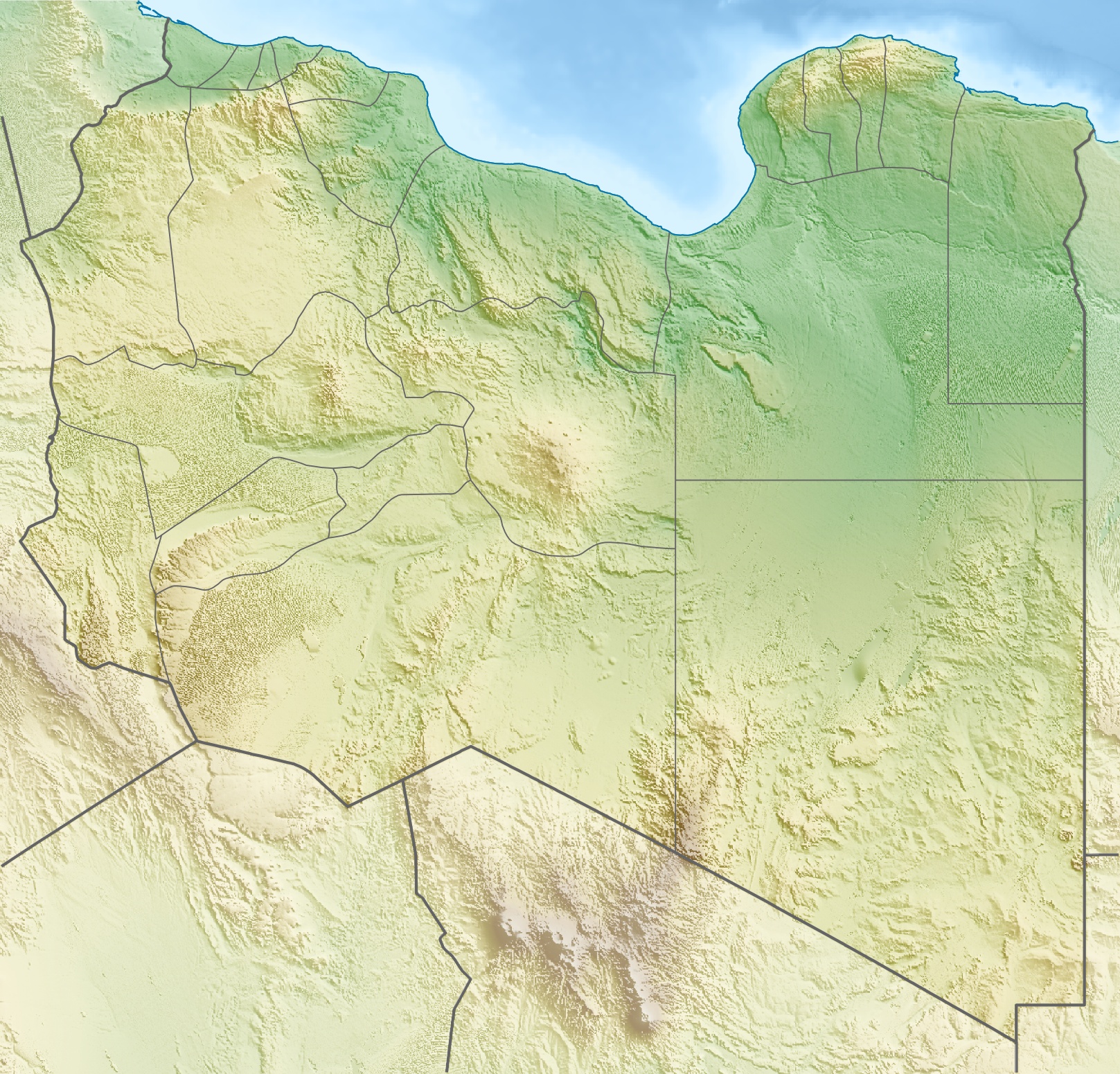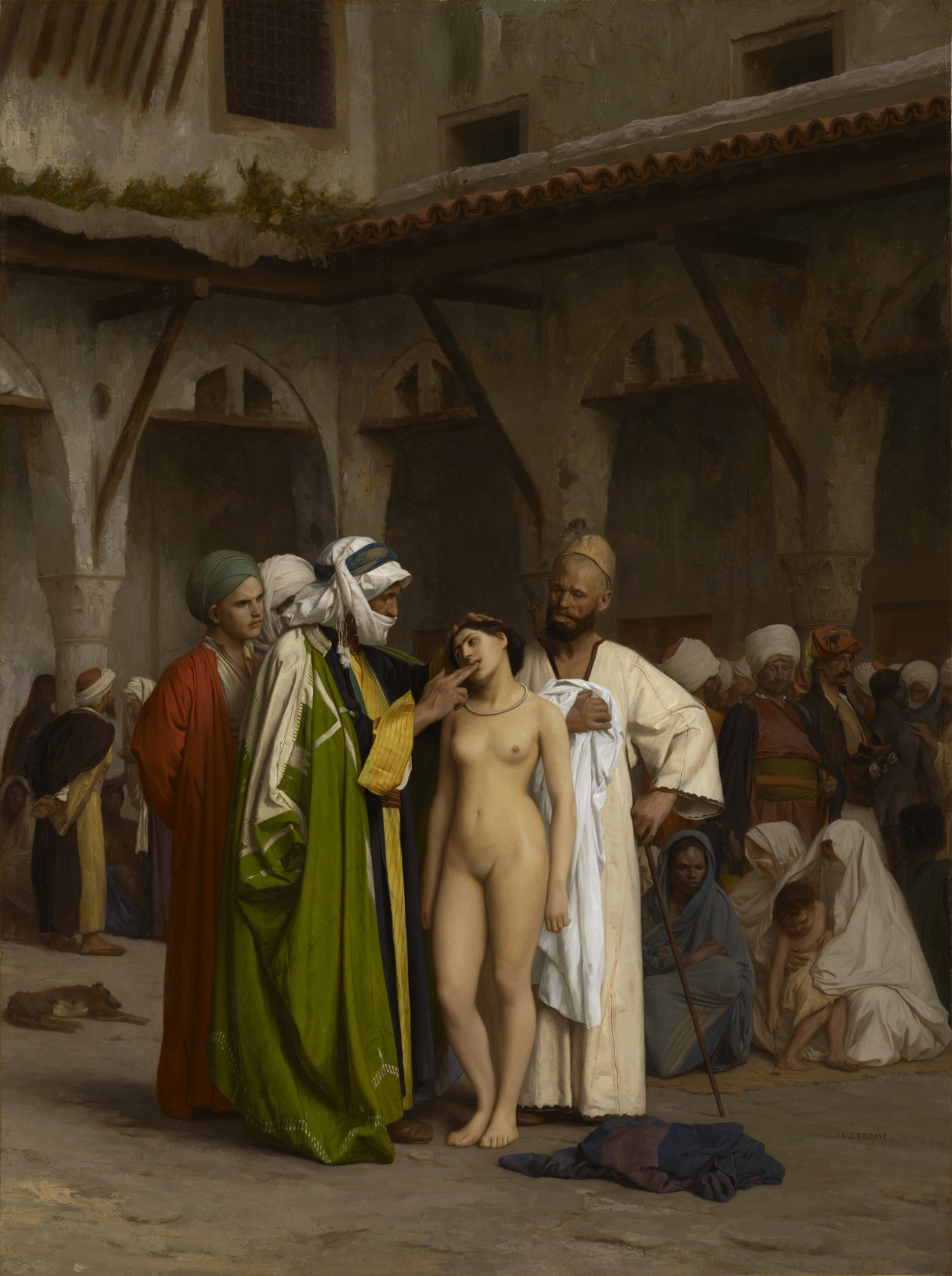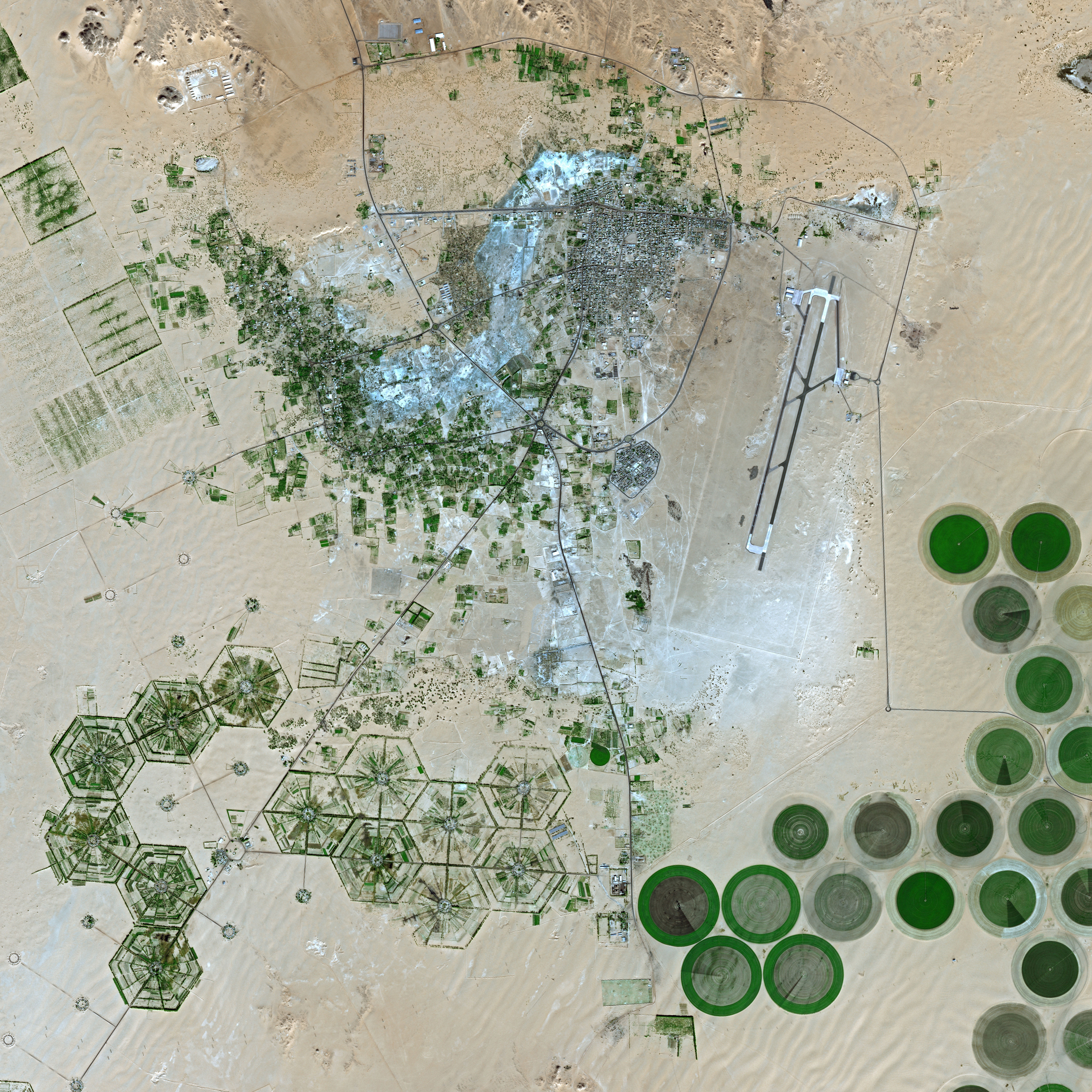|
Slavery In Libya
Slavery in Libya has a long history and a lasting impact on the Libyan culture. It is closely connected with the wider context of slavery in North African and trans-Saharan slave trade. History Enslavement of Europeans It is estimated that between 1 million and 1.25 million Europeans were captured by pirates and sold as slaves between the 16th and 19th century. Reports of Barbary raids and kidnappings of those in Italy, France, Iberia, England, Ireland, Scotland and as far north as Iceland exist from this period. Famous accounts of Barbary slave raids include a mention in the Diary of Samuel Pepys and a raid on the coastal village of Baltimore, Ireland, during which pirates left with the entire populace of the settlement. Such raids in the Mediterranean were so frequent and devastating that the coastline between Venice and Malaga suffered widespread depopulation, and settlement there was discouraged. It was said that this was largely because "there was no one left to capture a ... [...More Info...] [...Related Items...] OR: [Wikipedia] [Google] [Baidu] |
Libya Relief Location Map
Libya (; ar, ليبيا, Lībiyā), officially the State of Libya ( ar, دولة ليبيا, Dawlat Lībiyā), is a country in the Maghreb region in North Africa. It is bordered by the Mediterranean Sea to the north, Egypt to the east, Sudan to the southeast, Chad to the south, Niger to the southwest, Algeria to the west, and Tunisia to the northwest. Libya is made of three historical regions: Tripolitania, Fezzan, and Cyrenaica. With an area of almost 700,000 square miles (1.8 million km2), it is the fourth-largest country in Africa and the Arab world, and the 16th-largest in the world. Libya has the 10th-largest proven oil reserves in the world. The largest city and capital, Tripoli, is located in western Libya and contains over three million of Libya's seven million people. Libya has been inhabited by Berbers since the late Bronze Age as descendants from Iberomaurusian and Capsian cultures. In ancient times, the Phoenicians established city-states and trading posts i ... [...More Info...] [...Related Items...] OR: [Wikipedia] [Google] [Baidu] |
Tripoli, Libya
Tripoli (; ar, طرابلس الغرب, translit= Ṭarābulus al-Gharb , translation=Western Tripoli) is the capital and largest city of Libya, with a population of about 1.1 million people in 2019. It is located in the northwest of Libya on the edge of the desert, on a point of rocky land projecting into the Mediterranean Sea and forming a bay. It includes the port of Tripoli and the country's largest commercial and manufacturing center. It is also the site of the University of Tripoli. The vast barracks, which includes the former family estate of Muammar Gaddafi, is also located in the city. Colonel Gaddafi largely ruled the country from his residence in this barracks. Tripoli was founded in the 7th century BC by the Phoenicians, who gave it the Libyco-Berber name ( xpu, 𐤅𐤉𐤏𐤕, ) before passing into the hands of the Greek rulers of Cyrenaica as Oea ( grc-gre, Ὀία, ). Due to the city's long history, there are many sites of archeological signi ... [...More Info...] [...Related Items...] OR: [Wikipedia] [Google] [Baidu] |
Slave Market
A slave market is a place where slaves are bought and sold. These markets became a key phenomenon in the history of slavery. Slave markets in the Ottoman Empire In the Ottoman Empire during the mid-14th century, slaves were traded in special marketplaces called "Esir" or "Yesir" that were located in most towns and cities. It is said that Sultan Mehmed II "the Conqueror" established the first Ottoman slave market in Constantinople in the 1460s, probably where the former Byzantine slave market had stood. According to Nicolas de Nicolay, there were slaves of all ages and both sexes, they were displayed naked to be thoroughly checked by possible buyers. In the early 18th century, the Crimean Khanate maintained a massive slave trade with the Ottoman Empire and the Middle East, exporting about 2 million slaves from Russia and Poland-Lithuania over the period 1500–1700. Caffa (modern Feodosia) became one of the best-known and significant trading ports and slave markets. Slave ma ... [...More Info...] [...Related Items...] OR: [Wikipedia] [Google] [Baidu] |
Italian Libya
Libya ( it, Libia; ar, ليبيا, Lībyā al-Īṭālīya) was a colony of the Fascist Italy located in North Africa, in what is now modern Libya, between 1934 and 1943. It was formed from the unification of the colonies of Italian Cyrenaica and Italian Tripolitania, which had been Italian possessions since 1911. From 1911 until the establishment of a unified colony in 1934, the territory of the two colonies was sometimes referred to as "Italian Libya" or Italian North Africa (''Africa Settentrionale Italiana'', or ASI). Both names were also used after the unification, with Italian Libya becoming the official name of the newly combined colony. It had a population of around 150,000 Italians. The Italian colonies of Tripolitania and Cyrenaica were taken by Italy from the Ottoman Empire during the Italo-Turkish War of 1911-1912, and run by Italian governors. In 1923, indigenous rebels associated with the Senussi Order organized the Libyan resistance movement against Italian set ... [...More Info...] [...Related Items...] OR: [Wikipedia] [Google] [Baidu] |
Knud Holmboe
Knud Valdemar Gylding Holmboe (22 April 1902 Horsens Denmark – 13 October 1931 Aqaba, Jordan) was a Danish journalist, author and explorer who converted from Protestantism to Catholicism in 1921, and, after a sojourn in North Africa, ultimately converted to Islam in 1929. Six years later, he published a book of his experiences on a journey through Libya, that later became famous. The book exposed the maltreatment of the population the author had witnessed on his journey and the atrocities committed by the Italian colonial power. This account is especially valuable for its description of the concentration camps into which Italian colonial powers forced Bedouin Arabs and where "torture, humiliation, and famine" were rife. Holmboe was murdered on his way to Makkah in Aqaba in October 1931. Some suspect that Italian intelligence officials, connected to the regime of Benito Mussolini, conspired in his death. Knud Holmboe was the elder brother of Danish composer Vagn Holmboe. Biograp ... [...More Info...] [...Related Items...] OR: [Wikipedia] [Google] [Baidu] |
Danish People
Danes ( da, danskere, ) are a North Germanic ethnic group and nationality native to Denmark and a modern nation identified with the country of Denmark. This connection may be ancestral, legal, historical, or cultural. Danes generally regard themselves as a nationality and reserve the word "ethnic" for the description of recent immigrants, sometimes referred to as "new Danes". The contemporary Danish national identity is based on the idea of "Danishness", which is founded on principles formed through historical cultural connections and is typically not based on racial heritage. History Early history Denmark has been inhabited by various Germanic peoples since ancient times, including the Angles, Cimbri, Jutes, Herules, Teutones and others. The first mentions of " Danes" are recorded in the mid-6th century by historians Procopius ( el, δάνοι) and Jordanes (''danī''), who both refer to a tribe related to the Suetidi inhabiting the peninsula of Jutland, the province of Sc ... [...More Info...] [...Related Items...] OR: [Wikipedia] [Google] [Baidu] |
Ahmed Hassanein
Ahmed Hassanein Pasha, KCVO, MBE () (31 October 1889 – 19 February 1946) or Aḥmad Moḥammad Makhlūf Ḥasanēn al-Būlākī () was an Egyptian courtier, diplomat, politician, and geographic explorer. Hassanein was the tutor, Chief of the Diwan and Chamberlain to Farouk, the king of Egypt from 1936 to 1952, and also represented Egypt in the 1924 Summer Olympics in fencing. Early life Hassanein was born in 1889, the son of an Al-Azhar University professor, and grandson of the last Admiral of the Egyptian fleet before it was dismantled under British occupation in 1882. He studied at Balliol College of Oxford University. Tutor King Fuad I, father of Farouk, chose Hassanein to tutor the Crown Prince during the Prince's studies as a teenager in London. While Fuad spoke Turkish as his mother-tongue and was therefore unable to eloquently address his own nation, Farouk learned to speak Arabic proficiently under Hassanein's coaching. Expeditions During an expedition thro ... [...More Info...] [...Related Items...] OR: [Wikipedia] [Google] [Baidu] |
Kufra
Kufra () is a basinBertarelli (1929), p. 514. and oasis group in the Kufra District of southeastern Cyrenaica in Libya. At the end of nineteenth century Kufra became the centre and holy place of the Senussi order. It also played a minor role in the Western Desert Campaign of World War II. It is located in a particularly isolated area, not only because it is in the middle of the Sahara Desert but also because it is surrounded on three sides by depressions which make it dominate the passage in east-west land traffic across the desert. For the colonial Italians, it was also important as a station on the north-south air route to Italian East Africa. These factors, along with Kufra's dominance of the southeastern Cyrenaica region of Libya, highlight the strategic importance of the oasis and why it was a point of conflict during World War II. Etymology The folk etymology associaters the word Kufra as coming from the Arabic word kafir, the Arabic term for non-Muslims (often transla ... [...More Info...] [...Related Items...] OR: [Wikipedia] [Google] [Baidu] |
Ouaddai Empire
The Wadai Sultanate ( ar, سلطنة وداي ''Saltanat Waday'', french: royaume du Ouaddaï, Fur: ''Burgu'' or ''Birgu''; 1501–1912) was an African sultanate located to the east of Lake Chad in present-day Chad and the Central African Republic. It emerged in the seventeenth century under the leadership of the first sultan, Abd al-Karim, who overthrew the ruling Tunjur people of the area. It occupied land previously held by the Sultanate of Darfur (in present-day Sudan) to the northeast of the Sultanate of Baguirmi. History Origins Prior to the 1630s, Wadai, also known as Burgu to the people of Darfur, was a pre-Islamic Tunjur kingdom, established around 1501. The Arab migrants to the area which became Wadai claimed to be descendants of the Abbasid Caliphs, specifically from Salih ibn Abdallah ibn Abbas. Yame, an Abbasid leader, settled with Arab migrants in Debba, near the future capital of Ouara (Wara). In 1635, the Maba and other small groups in the region rallied to ... [...More Info...] [...Related Items...] OR: [Wikipedia] [Google] [Baidu] |
Adolf Vischer
Adolf (also spelt Adolph or Adolphe, Adolfo and when Latinised Adolphus) is a given name used in German-speaking countries, Scandinavia, the Netherlands and Flanders, France, Italy, Spain, Portugal, Latin America and to a lesser extent in various Central European and East European countries with non-Germanic languages, such as Lithuanian Adolfas and Latvian Ādolfs. Adolphus can also appear as a surname, as in John Adolphus, the English historian. The female forms Adolphine and Adolpha are far more rare than the male names. The name is a compound derived from the Old High German ''Athalwolf'' (or ''Hadulf''), a composition of ''athal'', or ''adal'', meaning "noble" (or '' had(u)''-, meaning "battle, combat"), and ''wolf''. The name is cognate to the Anglo-Saxon name '' Æthelwulf'' (also Eadulf or Eadwulf). The name can also be derived from the ancient Germanic elements "Wald" meaning "power", "brightness" and wolf (Waldwulf). Due to negative associations with Adolf Hitle ... [...More Info...] [...Related Items...] OR: [Wikipedia] [Google] [Baidu] |
Italian Postcard 1937 - "Costumi Africani" (Cyrenaica)
Italian(s) may refer to: * Anything of, from, or related to the people of Italy over the centuries ** Italians, an ethnic group or simply a citizen of the Italian Republic or Italian Kingdom ** Italian language, a Romance language *** Regional Italian, regional variants of the Italian language ** Languages of Italy, languages and dialects spoken in Italy ** Italian culture, cultural features of Italy ** Italian cuisine, traditional foods ** Folklore of Italy, the folklore and urban legends of Italy ** Mythology of Italy, traditional religion and beliefs Other uses * Italian dressing, a vinaigrette-type salad dressing or marinade * Italian or Italian-A, alternative names for the Ping-Pong virus, an extinct computer virus See also * * * Italia (other) * Italic (other) * Italo (other) * The Italian (other) * Italian people (other) Italian people may refer to: * in terms of ethnicity: all ethnic Italians, in and outside of Italy * in t ... [...More Info...] [...Related Items...] OR: [Wikipedia] [Google] [Baidu] |
Ottoman Libya
The coastal region of what is today Libya was ruled by the Ottoman Empire from 1551 to 1912. First, from 1551 to 1864, as the Eyalet of Tripolitania ( ota, ایالت طرابلس غرب ''Eyālet-i Trâblus Gârb'') or ''Bey and Subjects of Tripoli of Barbary'', later, from 1864 to 1912, as the Vilayet of Tripolitania ( ota, ولايت طرابلس غرب, links=no ''Vilâyet-i Trâblus Gârb''). It was also known as the Kingdom of Tripoli, even though it was not technically a kingdom, but an Ottoman province ruled by pashas (governors). The Karamanli dynasty ruled the province as a ''de facto'' hereditary monarchy from 1711 to 1835, despite remaining under nominal Ottoman rule and suzerainty from Constantinople. Besides the core territory of Tripolitania, '' Barca'' was also considered part of the kingdom of Tripoli, because it was ruled by the Pasha of Tripoli, also the nominal Ottoman governor-general. Ottoman name of "Trablus Garb" literally means "Tripoli in the West" sinc ... [...More Info...] [...Related Items...] OR: [Wikipedia] [Google] [Baidu] |







.png)